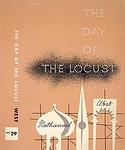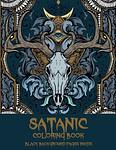The Greatest "Allegorical, Modernist, Fiction, Historical fiction" Books Since 1900
Click to learn how this list is calculated.
This list represents a comprehensive and trusted collection of the greatest books. Developed through a specialized algorithm, it brings together 305 'best of' book lists to form a definitive guide to the world's most acclaimed books. For those interested in how these books are chosen, additional details can be found on the rankings page.
Genres
Allegorical books are a genre of literature that use symbolic characters, events, and settings to convey a deeper meaning or message. These stories often have a moral or philosophical lesson that is meant to be interpreted by the reader. Allegories can be found in many different types of literature, including novels, short stories, and poetry. They are a powerful tool for exploring complex ideas and emotions, and can be used to comment on social, political, or religious issues. Overall, allegorical books are a thought-provoking and engaging genre that challenges readers to think critically and reflect on the world around them.
Modernist literature is a category of books that emerged in the early 20th century, characterized by a break from traditional literary forms and a focus on individual experience and perception. Modernist writers experimented with language, form, and structure, often using stream-of-consciousness narration and fragmented storytelling to convey the complexity and ambiguity of modern life. Themes of alienation, disillusionment, and the search for meaning are common in modernist literature, which reflects the cultural and social upheavals of the time. Overall, modernist literature is a challenging and thought-provoking genre that continues to influence contemporary literature and culture.
Historical fiction is a genre of literature that combines fictional stories with real historical events, settings, and characters. These books often take place in a specific time period and are based on research and factual information, but also include imaginative elements to create a compelling narrative. Historical fiction allows readers to experience the past in a unique and engaging way, while also providing insight into the social, cultural, and political issues of the time.
Countries
Date Range
Reading Statistics
Click the button below to see how many of these books you've read!
Download
If you're interested in downloading this list as a CSV file for use in a spreadsheet application, you can easily do so by clicking the button below. Please note that to ensure a manageable file size and faster download, the CSV will include details for only the first 500 books.
Download-
1. The Magic Mountain by Thomas Mann
In this novel, the protagonist, a young, ordinary man, visits his cousin at a tuberculosis sanatorium in the Swiss Alps. Intending to stay for only a few weeks, he ends up remaining there for seven years, becoming a patient himself. The book explores his experiences and relationships with other patients and staff, delving into philosophical discussions on life, time, and the nature of disease. It also provides a vivid portrayal of the European society and intellectual life on the eve of World War I.
The 43rd Greatest Book of All Time -
2. The Tin Drum by Günter Grass
The novel tells the story of Oskar Matzerath, a boy who decides on his third birthday that he will stop growing and remain a three-year-old forever. Oskar is gifted with a tin drum by his mother, which he uses to express his emotions and thoughts. Living in Danzig during the rise of Nazi Germany, Oskar's refusal to grow is a form of protest against the adult world. The book is a blend of magical realism and historical fiction, providing a unique perspective on the horrors of World War II and the post-war era in Germany.
The 93rd Greatest Book of All Time -
3. Doctor Faustus by Thomas Mann
The novel is a reimagining of the Faust legend set in the context of the first half of the 20th century and the turmoil of Germany in that period. It tells the story of a composer who makes a pact with the devil, exchanging his soul for unlimited creative genius. The protagonist's life and work reflect the cultural and political journey of Germany leading up to World War II, providing a deep exploration of the individual's role in a society undergoing dramatic change. The novel is also a profound meditation on the nature of time, the art and the artist, and the destructiveness of human ambition.
The 153rd Greatest Book of All Time -
4. Death of Virgil by Hermann Broch
The novel explores the final hours of the Roman poet Virgil, who, while on his deathbed, contemplates the value and impact of his life's work, particularly his unfinished epic, the Aeneid. The narrative is a complex, stream-of-consciousness meditation on art, life, and death, with Virgil wrestling with his desire to burn his epic and the emperor's command to preserve it. The book delves into themes of the meaning of human existence, the role of art in society, and the clash between the individual's inner world and the external world.
The 348th Greatest Book of All Time -
5. The Day of the Locust by Nathanael West
"The Day of the Locust" is a novel set in 1930s Hollywood, portraying the dark side of the American dream through the lives of its desperate characters. The protagonist, a young artist from the East Coast, finds himself disillusioned by the superficiality and decay of Hollywood society, which is filled with failed actors, charlatans, and lost souls. The narrative culminates in a violent riot, symbolizing the destructive power of frustrated dreams and the harsh reality of the American dream.
The 354th Greatest Book of All Time -
6. Petersburg by Andrei Bely
"Petersburg" is a symbolist novel set in the heart of Russia during the 1905 Revolution. It follows the story of a young man who is given the task of assassinating his own father, a high-ranking government official, by a radical political group. The narrative is a complex mix of politics, family drama, and philosophical introspection, all set against the backdrop of a city in turmoil. The novel is renowned for its vivid and poetic descriptions of the city itself, making Petersburg as much a character in the story as the people who inhabit it.
The 1048th Greatest Book of All Time -
7. Garden, Ashes by Danilo Kiš
"Garden, Ashes" is a semi-autobiographical novel set during World War II, tracing the experiences of a Jewish boy and his eccentric father in Hungary. The narrative weaves between the boy's vivid imagination and the harsh realities of war, as he grapples with his father's unusual behavior and the increasing threat of the Holocaust. The book is a poignant exploration of childhood, family, and the impact of war on ordinary lives.
The 2443rd Greatest Book of All Time -
8. Chevengur by Andrey Platonov
The book is a complex and philosophical tale set in the aftermath of the Russian Revolution, exploring the lives of various characters in a small town as they grapple with the utopian ideals of communism and the harsh realities of its implementation. Through the experiences of these characters, including a young revolutionary and a disenchanted wanderer, the narrative delves into themes of human nature, societal transformation, and the search for meaning in a world undergoing radical change. The story's blend of surrealism, poetic language, and political commentary creates a unique and often disquieting examination of the Soviet dream and the disillusionment that followed its pursuit.
The 3652nd Greatest Book of All Time -
9. A Fable by William Faulkner
This novel is a World War I allegory where a Christ-like figure emerges within a French regiment, sparking a mutiny. The figure, a corporal, persuades his squadron to not attack in the bloody conflict, leading to their court-martial and execution. The narrative explores themes of war, morality, and the human spirit, with the corporal's actions causing a ripple effect, impacting the lives of soldiers, officers, and even a Jesuit priest.
The 3669th Greatest Book of All Time -
10. The Baphomet by Pierre Klossowski
"The Baphomet" is a philosophical novel that delves into the esoteric and mystical aspects of the Knights Templar, exploring themes of transgression, heresy, and the nature of divine presence. The narrative is structured around a series of ritualistic encounters and dialogues among the Templars, who have achieved a form of immortality. The characters engage in complex discussions on the dissolution of individual identity, the fluidity of gender, and the quest for spiritual transcendence. The book blends historical elements with surreal and symbolic imagery, challenging the reader to consider the boundaries of desire, knowledge, and the sacred.
The 7168th Greatest Book of All Time
Reading Statistics
Click the button below to see how many of these books you've read!
Download
If you're interested in downloading this list as a CSV file for use in a spreadsheet application, you can easily do so by clicking the button below. Please note that to ensure a manageable file size and faster download, the CSV will include details for only the first 500 books.
Download








